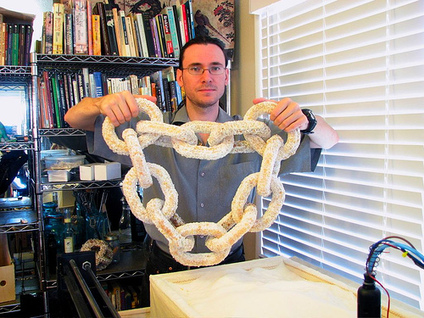Researchers suggest societal control of sugar essential to ease public health burden
Sugar is responsible for 35 million deaths annually worldwide from non-communicable diseases like diabetes, heart disease and cancer. Researchers at the University of California San Francisco argue that sugar should be controlled like alcohol and tobacco to protect public health.
In the Feb. 2 issue of Nature, Robert Lustig MD, Laura Schmidt PhD, MSW, MPH, and Claire Brindis, DPH, colleagues at the University of California, San Francisco (UCSF), argue that sugar’s potential for abuse, coupled with its toxicity and pervasiveness in the Western diet make it a primary culprit of this worldwide health crisis. The study is interdisciplinary, with researchers trained in endocrinology, sociology, and public health.
Sugar Kills
Non-communicable diseases now pose a greater health burden worldwide than infectious diseases, according to the United Nations. In the United States, 75 percent of health care dollars are spent treating these diseases.
Sugar, they argue, is far from just “empty calories” that make people fat. At the levels consumed by most Americans, sugar:
- changes metabolism
- raises blood pressure
- critically alters the signaling of hormones
- causes significant damage to the liver – the least understood of sugar’s damages.
These health hazards largely mirror the effects of drinking too much alcohol (distilled sugar).
“As long as the public thinks that sugar is just ’empty calories,’ we have no chance in solving this,” said Lustig, a professor of pediatrics, in the division of endocrinology at the UCSF Benioff Children’s Hospital and director of the Weight Assessment for Teen and Child Health (WATCH) Program at UCSF.
“There are good calories and bad calories, just as there are good fats and bad fats, good amino acids and bad amino acids, good carbohydrates and bad carbohydrates,” Lustig said. “But sugar is toxic beyond its calories.”
Sugar Consumption
Worldwide consumption of sugar has tripled during the past 50 years and is viewed as a key cause of the obesity epidemic.
Limiting the consumption of sugar has challenges beyond educating people about its potential toxicity. “We recognize that there are cultural and celebratory aspects of sugar,” said Brindis, director of UCSF’s Philip R. Lee Institute for Health Policy Studies. “Changing these patterns is very complicated”
According to Brindis, effective interventions can’t rely solely on individual change, but instead on environmental and community-wide solutions, similar to what has occurred with alcohol and tobacco, that increase the likelihood of success. “In order to move the health needle, this issue needs to be recognized as a fundamental concern at the global level,” Schmidt, professor of health policy at UCSF’s Philip R. Lee Institute for Health Policy Studies (IHPS), says.
Sugar Solution
Many of the interventions that have reduced alcohol and tobacco consumption can be models for addressing the sugar problem, such as levying special sales taxes, controlling access, and tightening licensing requirements on vending machines and snack bars that sell high sugar products in schools and workplaces.
“We’re not talking prohibition,” Schmidt said. “We’re not advocating a major imposition of the government into people’s lives. We’re talking about gentle ways to make sugar consumption slightly less convenient, thereby moving people away from the concentrated dose. What we want is to actually increase people’s choices by making foods that aren’t loaded with sugar comparatively easier and cheaper to get.”
Image: ![]() Some rights reserved by oskay
Some rights reserved by oskay

